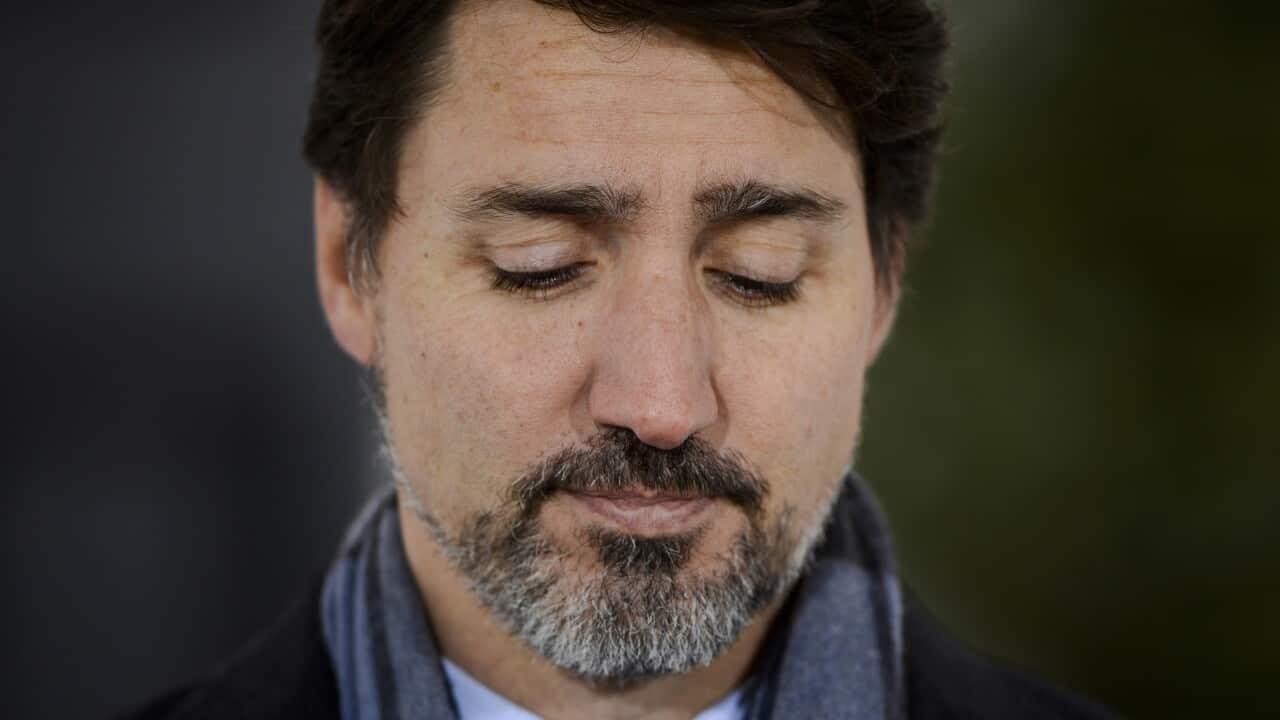After nearly a decade as Canada's prime minister, on Monday, citing "internal battles".
"The fact is, despite best efforts to work through it, parliament has been paralysed for months after what has been the longest session of a minority parliament in Canadian history," he said.
It comes after declining popularity and rising public anger over high prices and a housing shortage, along with in-fighting and party conflicts.
Rise to power and initial popularity
Trudeau is the son of former prime minister Pierre Trudeau and became leader of Canada's Liberal Party in 2013. The party was in deep trouble and had been reduced to third place in the House of Commons for the first time.
In 2015, he was elected prime minister and, at the time, was seen as a progressive, fresh face who could bring change into Canadian politics. In the months after the election, he had approval rates of over 60 per cent, according to research organisation Angus Reid Institute.
Trudeau committed to gender parity in his cabinet, invested in social programs and committed to the availability of affordable childcare.
His government also successfully renegotiated the trilateral trade treaty with the United States and Mexico, introduced a carbon tax program, and initiated a reconciliation with Canada's Indigenous populations.
Popularity declining over time
Trudeau is one of the few Canadian leaders to win three consecutive terms, but his popularity among constituents has waned throughout his time in power.
In 2017, he was found to have violated conflict-of-interest rules by accepting a vacation, gifts and flights from the Aga Khan, leader of the Shia Ismaili Muslims, a branch of Islam.
In the 2019 election, his party retained power with a minority government, which left them reliant on other parties. In months leading up to the election, his approval rating hit a low of 31 per cent in August 2019, while disapproval was at 61 per cent that month, according to the Angus Reid Institute.
After the election, his approval rate marginally increased to 36 per cent in December 2019, while disapproval remained at 61 per cent.
During the COVID-19 pandemic, he appeared on television daily for months, and his approval ratings began to drop.
Historian JDM Stewart, author of two books on Canadian prime ministers, said: "One of the reasons why he's very unpopular right now is that he's been over-exposed."
"When you have a big personality ... you're going to probably end up rubbing a few people the wrong way after nine years. They've just had enough of you."
In 2021, Trudeau called a snap election, which again led to a minority government.
In December 2024, a conflict between Trudeau and then-finance minister Chrystia Freeland made headlines. Freeland quit on 16 December, with the resignation setting off new calls for Trudeau to step aside or for a non-confidence vote.
Trudeau has also started facing growing discontent over the prices of groceries and the market. on Canadian soil, and the threat of crippling tariffs when US president-elect Donald Trump takes office.
International confidence despite local frustration
While frustration in Canada was growing, Trudeau has remained popular in some other parts of the world.
According to the latest Angus Reid Institute data, Trudeau's approval hit a low of 22 per cent in December 2024, while disapproval rose to 74 per cent, with the remaining four per cent giving an 'unsure' rating.
Similarly, a poll by market research and public opinion company Ipsos Canada released in December showed the Conservative Party and its leader, Pierre Poilievre, had 45 per cent of support among decided voters, compared with Trudeau's 26 per cent.
But in Australia, Trudeau — along with leaders of other liberal democracies — appears to still be well regarded. A 2024 poll by think tank the Lowy Institute found 65 per cent of Australians had confidence in Trudeau, ahead of then-Japanese prime minister Fumio Kishida and French President Emmanuel Macron.
Australian Prime Minister Anthony Albanese paid tribute to Trudeau following the resignation announcement.
"Justin Trudeau, I regard as a friend, and I wish him well," he told the Today show on Tuesday.
"He has served Canada well for a long period of time."
—Additional reporting by the Australian Associated Press



